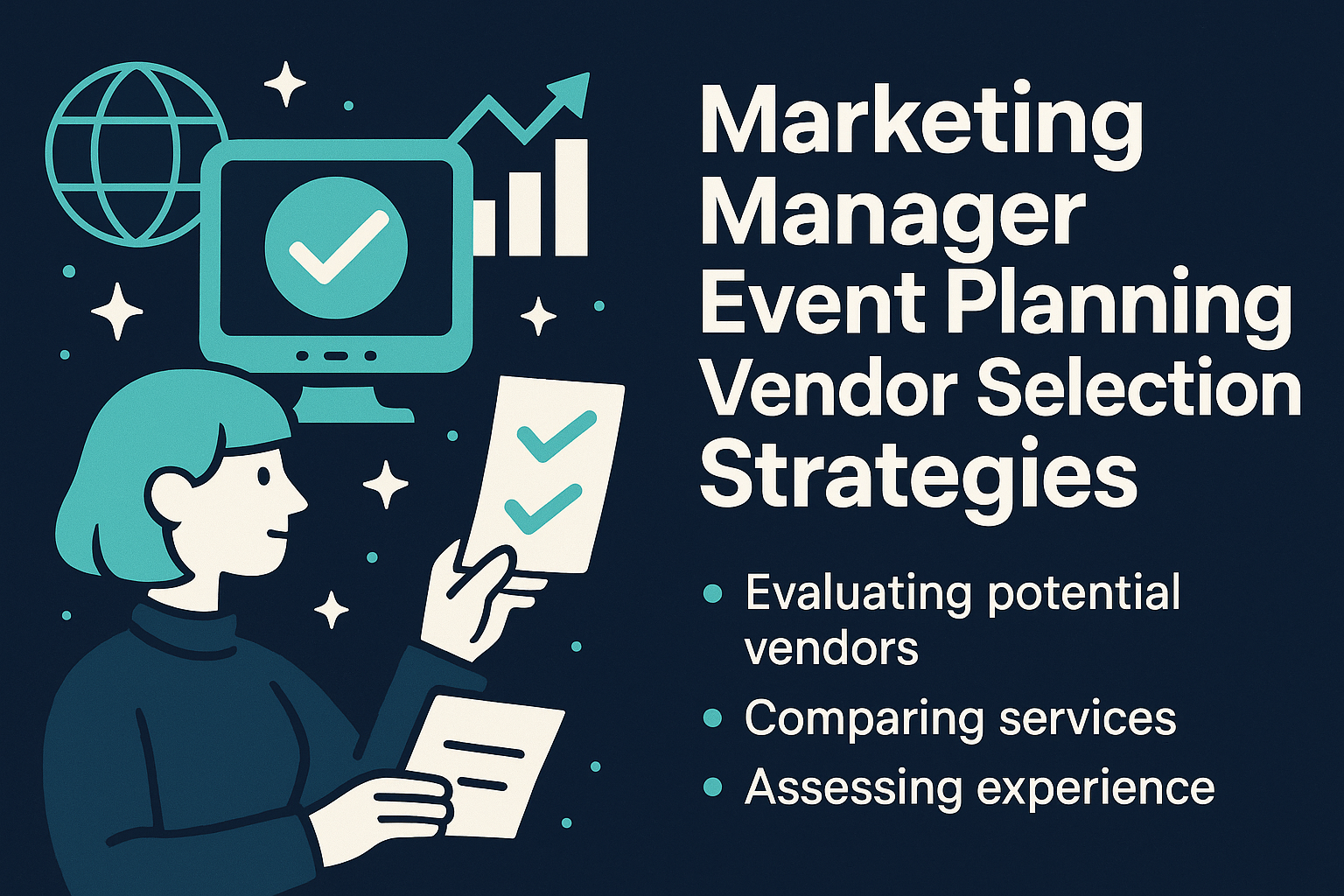Schedule a Demo
Marketing managers play a pivotal role in orchestrating successful events. Their task involves not just planning but also meticulously selecting vendors who can deliver the vision. In my experience working with marketing teams, the process of finding the right event planning vendors has evolved significantly, driven by digital tools and refined strategies.
The first step in vendor selection is understanding the landscape. Marketing managers need to know the types of vendors available, from caterers and venue providers to tech solutions for event management. I've found that a comprehensive list of potential vendors, categorized by their services, helps in narrowing down the search effectively.
Digital platforms have become indispensable for marketing managers in the search for event planning vendors. Websites like Cvent and Eventbrite offer directories where you can filter vendors based on location, budget, and services. I recommend using these platforms not only for their search capabilities but also for the reviews and ratings that provide insights into vendor reliability and quality.
Social media is another powerful tool in the vendor selection arsenal. Platforms like LinkedIn and Instagram allow marketing managers to connect directly with vendors, see their work in action, and even get recommendations from peers. In my work, I've seen marketing professionals leverage these networks to gain insider tips and find hidden gems that might not be listed on traditional platforms.
The Request for Proposal (RFP) process remains a critical step in selecting event planning vendors. An RFP helps marketing managers to clearly articulate their needs and expectations, allowing vendors to respond with tailored proposals. I've observed that a well-crafted RFP can significantly streamline the selection process, ensuring that all potential vendors are evaluated on the same criteria.
Once potential vendors are identified, evaluating their portfolios is essential. Marketing managers should look for past events that align with their current project's vision and scale. I always advise my clients to request case studies or examples of similar events the vendor has managed, which can provide a clear picture of their capabilities and style.
Effective communication is key in event planning. Marketing managers need to assess how responsive and communicative potential vendors are from the outset. I've learned that vendors who are proactive in their communication tend to be more reliable and easier to work with during the event planning process.
Budget considerations are always at the forefront of vendor selection. Marketing managers must balance cost with the value that vendors bring to the table. I've seen that while it's tempting to go for the cheapest option, the long-term value often lies in vendors who offer comprehensive services and exceptional quality, even if their prices are higher.
Technology plays a significant role in how marketing managers search for and select event planning vendors. Tools like project management software and CRM systems can help track vendor interactions and manage the selection process. I've found that integrating these technologies can make the vendor selection process more efficient and organized.
Testimonials and references are invaluable in the vendor selection process. Marketing managers should always ask for references from previous clients. I've personally used this method to verify vendor claims and get a sense of their performance under real-world conditions.
It's crucial for marketing managers to ensure that selected vendors align with their brand's values and ethos. This alignment can significantly impact the event's success and the audience's perception. I've worked with marketing teams who prioritize vendors that share their commitment to sustainability or inclusivity, which not only enhances the event but also reinforces the brand's message.
Negotiating contracts and terms with selected vendors is a delicate yet essential part of the process. Marketing managers need to ensure that all terms are clear, from payment schedules to cancellation policies. In my experience, clear and fair contracts lay the groundwork for a successful partnership.
Finalizing the vendor selection involves a thorough review of all gathered information. Marketing managers should compare proposals, check references, and perhaps even conduct final interviews. I've seen that taking the time to make an informed decision can lead to a smoother event planning process and a more successful event.
After the event, marketing managers should conduct a post-event evaluation of the vendors. This step helps in understanding what worked well and what could be improved for future events. I've always emphasized the importance of feedback to vendors, as it fosters a relationship of continuous improvement and collaboration.
